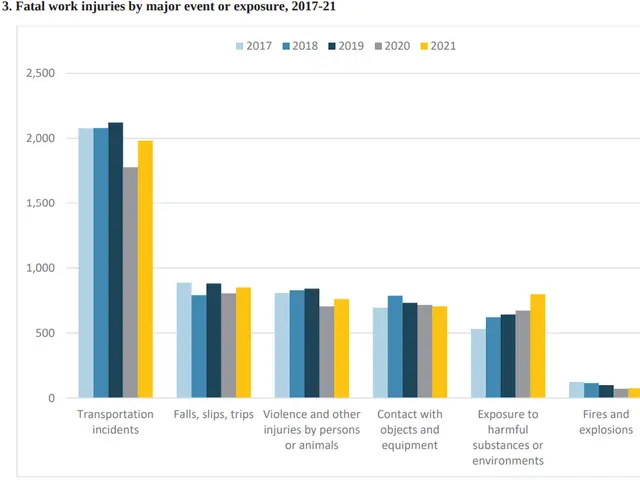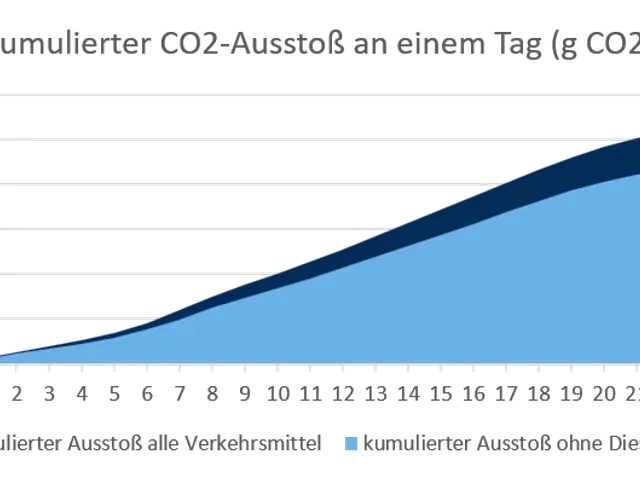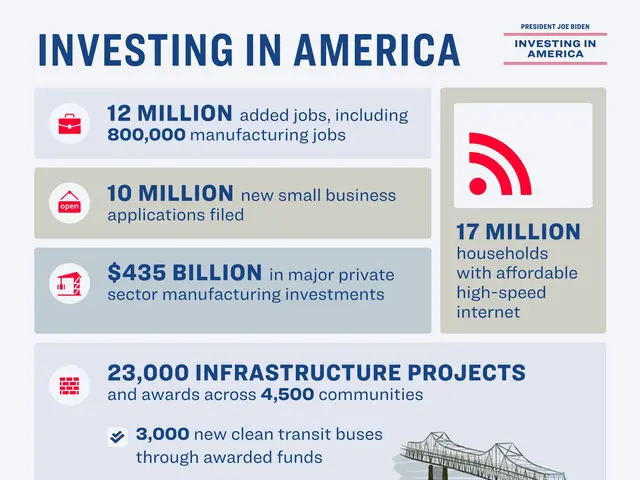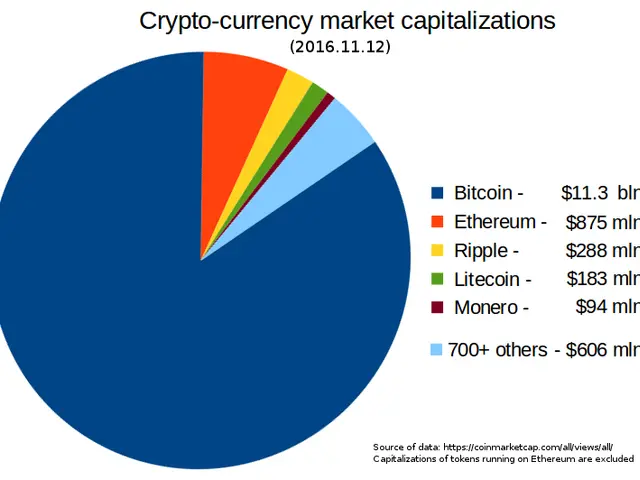Boom in German Exports and Production in March - Projections Point to Front-Loading Effects
Increase in exports and manufacturing output observed in March, according to experts, signifies a positive trend. - Increased Exports and Industrial Production Reported for March - Experts Attribute Favorable Impact
Embrace the casual vibe, dig this intriguing tidbit: Germany's exports climbed 1.1% in March, reaching a whopping €133.2 billion, as per the Federal Statistical Office's recent report. What's more, German companies exported €14.6 billion worth of goods to the US, marking a 2.4% increase from February, and €7.5 billion to China, showing a 10.2% surge.
Span over the stats, and you'll spot a notable 3.0% increase in Germany's industrial production in March, particularly within the auto and pharmaceutical sectors. Manufacturers across various subsectors, including construction and energy, cranked out 3.6% more than they did in February!
Nils Jannsen, peep the dude running the show at the Kiel Institute for the World Economy (IfW), weighs in, explaining that this surging industrial production might've boosted the nation's GDP growth for the first time in two years. However, some experts believe this ain't indicative of a sustainable economic miracle.
"The slight increase is mostly due to front-loading effects to avoid future burdens," says Volker Treier, the DIHK's smart cookie chief economist, assessing the export development.
Now, let's take a squint at that chump, Donald Trump, and his tariffs. Trump has already imposed tariffs of 10% on almost all imports, with a 20% hike queued for EU imports that's currently only suspended. He ain't holding back on the car, steel, and aluminum industries either, slapping 'em with 25% tariffs. While most of these jarheads didn't kick in during March, they were 'announced', and that's all it took to whip German companies into action.
Dirk Jandura, the big cheese at the German Association for Foreign Trade (BGA), admits the increase in exports ain't nothing to cheer about. While front-loading effects have created a temporary boost in the US market, they're causing overstocked inventories and relatively inert prices Stateside. "But trade relationships are taking a hit," warns Jandura, predicting harder times for both the US and Germany in the coming months due to the "tariff chaos."
Jannsen from the IfW believes the production surge was likely fueled by preemptive deliveries, and there's no sign of a trend reversal. If the US cranks up the heat on tariffs, the German industry might face yet another setback.
That's not all, folks! The US economy might be slowing down, too, and that won't bode well for Germany. Sebastian Dullien, scientific director of the Institute for Macroeconomics and Business Cycle Research (IMK) of the Hans Böckler Foundation, echoes this concern, urging politics to bump up domestic demand to shake off these economic blues as swiftly as possible.
Additional Insights:
The front-loading effect originates from manufacturers swelling their production and orders ahead of tariff imposition to escape higher costs later. In the case of the US-Germany tariff dispute, recent data showed a strong rebound in German industrial production in March 2025 (with a 3.0% increase month-on-month after seasonal adjustment), reflecting accelerated shipments to the US to avoid higher tariffs. This admittedly temporary trend is embedded in a broader context of economic stagnation and disrupted supply chains caused by tariff uncertainties and elevated energy costs. The tariff environment is compelling German exporters to adapt through supply chain adjustments and cautious investment, revealing that, despite front-loading's short-term benefits, tariffs ultimately exert a dampening effect on German industrial production and exports to the US over the medium term.
- Nils Jannsen, from the Kiel Institute for the World Economy, suggested that the increase in German industrial production might have boosted the nation's GDP growth for the first time in two years, but he cautioned that this wasn't indicative of a sustainable economic miracle.
- Volker Treier, the DIHK's chief economist, explained that the surging industrial production could be due to front-loading effects to avoid future burdens.
- Dirk Jandura, the German Association for Foreign Trade's big cheese, admitted the increase in exports wasn't something to cheer about, as front-loading effects had created a temporary boost in the US market but were resulting in overstocked inventories and relatively inert prices there.
- Sebastian Dullien, scientific director of the Institute for Macroeconomics and Business Cycle Research, urged politics to bump up domestic demand to shake off these economic blues as swiftly as possible, due to concerns about a possible slowdown in the US economy.
- The front-loading effect, originating from manufacturers swelling their production and orders ahead of tariff imposition to escape higher costs later, was revealed to be compelling German exporters to adapt through supply chain adjustments and cautious investment, thereby exerting a dampening effect on German industrial production and exports to the US over the medium term.







